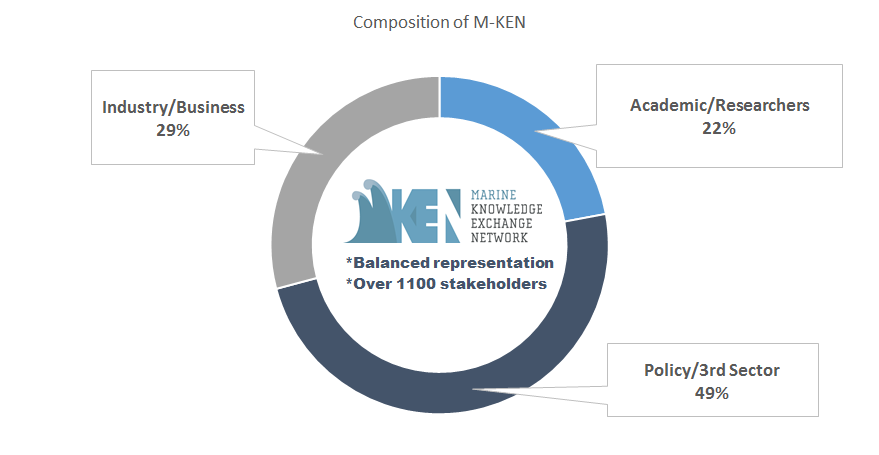The Marine Knowledge Exchange Network (MKEN) is a rapidly growing network of cross-sector marine stakeholders.
We have the mutually beneficial aims of:
- increasing capacity in stakeholder relevant marine and coastal research
- ensuring marine and coastal research is delivering collaborative impact and application
- helping to realise the social, economic and environmental potential of our seas and oceans.
How to get involved
Our network comprises over 1,100 stakeholders, all with a vested interest in the marine environment. We run and facilitate networking events, and targeted workshops throughout the year.

Members of the network are added to our mailing list and are the first to receive notifications of upcoming events along with our regular newsletter. Membership and almost all events are free. Whether your interest is business-related, policy related or research related we're keen to hear from you.
Projects
Loading...

)